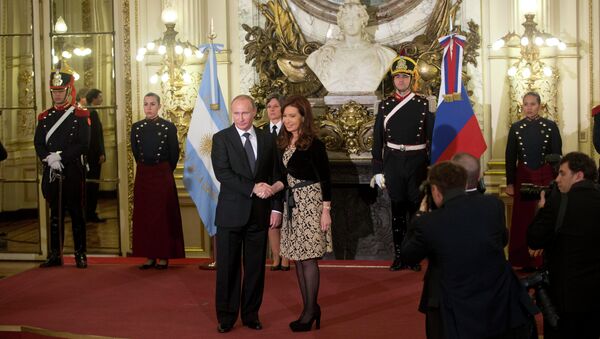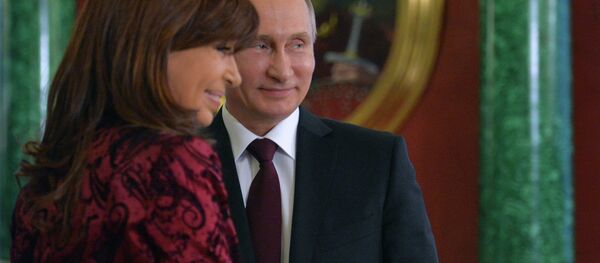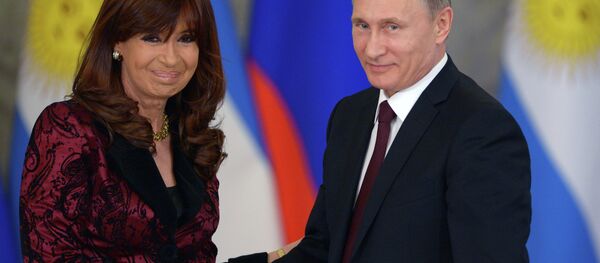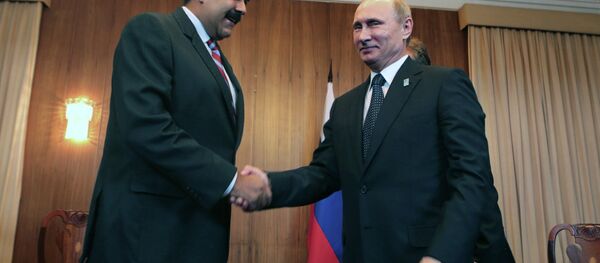Rodriguez states that such alliances are founded by economic cooperation (including commerce and investment), and strengthened by energy, geopolitics, and military technical cooperation.
The expert explains that when it comes to Russia-Argentina relations, "the more than 20 documents [signed] by the president of Argentina, Christina Fernandez de Kirchner, during the meeting with her counterpart, President Vladimir Putin, indicate the opportunities which emerge" as bilateral links pass "from 'strategic partnership' (which started in December 2008 during Dmitri Medvedev's presidency) to an 'integral strategic partnership ([from] April of the current year)."
According to Rodriguez, Argentina's strengthening ties with Russia is part of a long-term strategy to reorient trade toward Eurasia and the Orient, noting that between 2005 and 2013, economic exchanges with Russia, India and China rose from 9.36 to 14 percent of total trade, while trade with the United States dropped from 13 to 8.21 percent in the same period. And a great deal of room for the further strengthen ties, in food, mining, petrol, and other areas, still exists, according to the economist.
Energy
Defense
Considering the propensity for the "geo-politicization of international relations," Rodriguez's most intriguing argument by far is that in order to resist aggressive powers' tools of "war and occupation as mechanisms of dispossession," Russia and China should deepen their economic and energy 'integral strategic partnerships' via security and defense pacts as well. The expert argues that at present, Moscow and Beijing are the only nations "capable of offsetting North American forces in Latin American territory."
The Mexican economist argues that "in the final analysis…the construction of a multipolar world demands" that Russia and Argentina "unify their efforts to articulate a security and defense strategy against the excesses of the United States and its allies."







